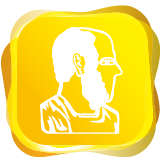 |
CCHU9052 Arts and Humanities
|
Course Description
This course helps students address difficult issues raised by the question of what makes a good life. It begins by discussing a few fundamental questions: What does it mean to live an examined life? Is an unexamined life worth living? How can philosophy help us pursue an examined life? The course then proceeds to examine some existing accounts of good life—hedonism, desire-fulfillment, and objective list theories. It then invites students to discuss things that are often thought to give value to human life: freedom, authenticity, love, sexuality, and virtue. The course also looks at questions that concern the meanings of life and hard choices: Can we ascribe meanings to our lives? What makes death bad? How should we confront hard choices?
In examining the “best things in life,” the course will introduce and evaluate several major philosophical theories of the good life, namely, hedonism, desire-fulfillment view, and the objective list approach. Hedonism holds that the only value in life is pleasure and that the best life is one that has the maximum amount of pleasure. The desire-fulfilment view denies that there is any intrinsic good that people must experience in order to have a good life. What determines the quality of our lives, according to this theory, is the extent to which our (informed) desires are fulfilled. The objective list approach argues that there are several intrinsically valuable things, pleasure included, that make life worth living. The course also critically discusses some visions of life developed by historical and contemporary thinkers.

Course Learning Outcomes
On completing the course, students will be able to:
-
- Understand and explicate some of the central arguments in ancient and contemporary literature on the good life.
- Formulate their own views and arguments on issues regarding the good life.
- Demonstrate how their own conceptions of the good life can connect to the wider society.
Offer Semester and Day of Teaching
Second semester (Wed)
Study Load
| Activities | Number of hours |
| Lectures | 24 |
| Tutorials | 10 |
| Reading / Self-study | 60 |
| Assessment: Essay / Report writing | 60 |
| Total: | 154 |
Assessment: 100% coursework
| Assessment Tasks | Weighting |
| Tutorial participation | 20 |
| Group debates | 20 |
| Short essays | 40 |
| Group video presentation | 20 |
Required Reading
Lecture 1: Is the unexamined life worth living?
- de Botton, A. (2000). The Consolations of Philosophy. London: Pantheon Books. [Chap. 1]
Lecture 2: Is pleasure the only good thing in life? The appeal of hedonism
- Hurka, T. (2011). The Best Things in Life. New York: Oxford University Press. [Chap. 3]
Lecture 3: Desire-fulfillment theories
- Parfit, D. (1984). Reason and Persons. Oxford: Oxford University Press. [Appendix I, 493-502].
Lecture 4: Objective list theories
- Kraut, R. (2007). What is Good and Why: The Ethics of Well-being. Cambridge, MA: Harvard University Press. [Sub-sections 34, 35, 36, 41, 46, 47]
Lecture 5: How important is personal autonomy to our lives?
- Kraut, R. (2007). What is Good and Why: The Ethics of Well-Being. Cambridge, MA: Harvard University Press. [“The Good of Autonomy” (pp. 196-201)]
Lecture 6: True to oneself: the ideas of identity and authenticity
- Guignon, C. (2004). On Being Authentic. London: Routledge. [Chap. 1]
Lecture 7: The different faces of love
- Hurka, T. (2011). The Best Things in Life. New York: Oxford University Press. [Chap. 7]
Lecture 8: Good life and sexuality
- Thomas, L. M. (1999). The Good Society and Sexual Orientation. In L. M. Thomas & M. E. Levin (Eds.), Sexual Orientation & Human Rights (pp. 1-78). Lanham, MD: Rowman & Littlefield.
Lecture 9: Why be good: Is virtue good for the person who has it?
- Hurka, T. (2011). The Best Things in Life. New York: Oxford University Press. [Chap. 6]
Lecture 10: Can we ascribe meanings to life?
- Wolf, S. (2013). The Meanings of Lives. In J. W. Seachris (Ed.), Exploring the Meaning of Life: An Anthology and Guide (pp. 304-318). Chichester, West Sussex: Wiley Blackwell.
Lecture 11: The puzzle of death: What makes it bad?
- Nagel, T (1987). What Does It All Mean? A Very Short Introduction to Philosophy. New York: Oxford University Press. [Chap. 9]
Lecture 12: Hard choices
- Chang, R. (2014, June 18). How to Make Hard Choices? From https://youtu.be/8GQZuzIdeQQ [Ted Talk]
Course Co-ordinator and Teacher(s)
| Course Co-ordinator | Contact |
| Professor Y. Jin Department of Politics and Public Administration, Faculty of Social Sciences |
Tel: 3917 2398 Email: ytjin@hku.hk |
| Teacher(s) | Contact |
| Professor Y. Jin Department of Politics and Public Administration, Faculty of Social Sciences |
Tel: 3917 2398 Email: ytjin@hku.hk |

